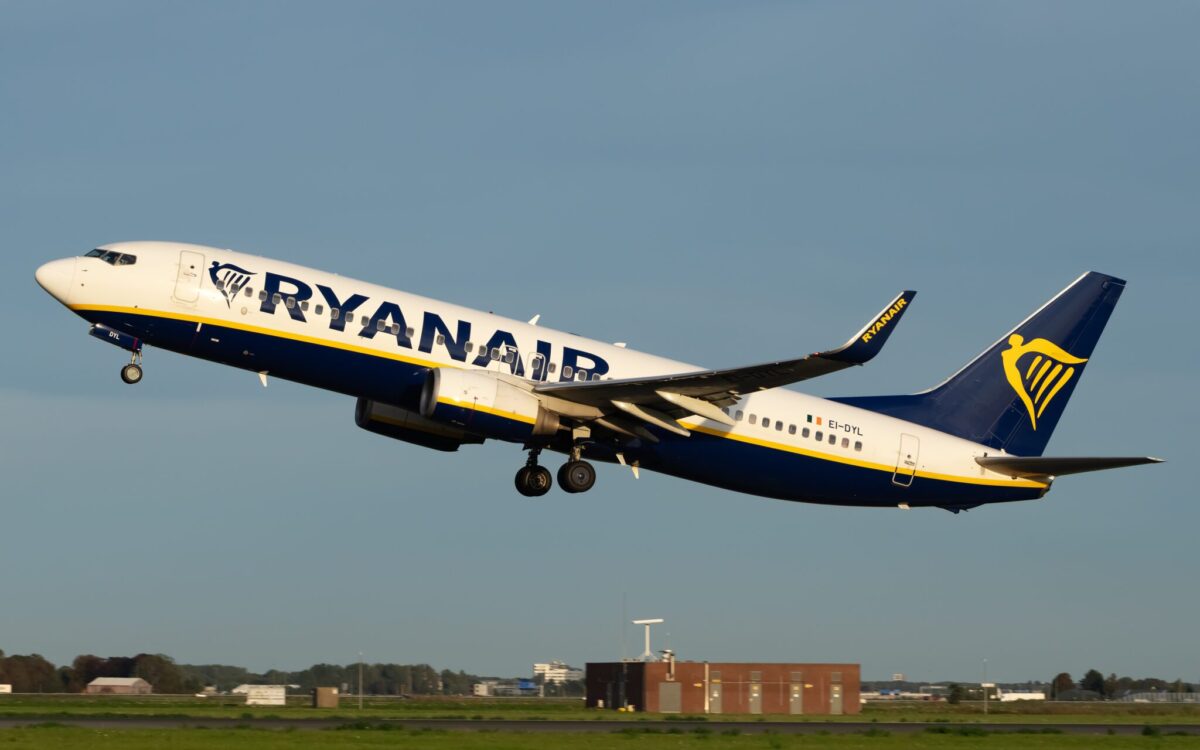Ryanair Calls European Air Traffic Control ‘Shambolic’ as Delays Mount

Skift Take
European airlines have delayed hundreds of flights due to air traffic control restrictions caused by severe weather in the region.
As parts of Europe face severe weather conditions, the region has placed air traffic control restrictions that are causing hundreds of flight delays.
EasyJet, a low-cost carrier, has nearly 50% of its flights delayed. British Airways has 36% of its flights delayed and Lufthansa 39% as of Friday afternoon, according to flight tracking site FlightAware.
“Like other airlines, due to European Air Traffic Control restrictions resulting from adverse weather conditions across Europe, we have unfortunately had to make some schedule adjustments,” British Airways said in a statement.
EasyJet also said it was experiencing “some disruption delay.”
Lufthansa did not immediately respond to a request for comment.
Ryanair took a harsher stance, calling for reform to the region’s air traffic control.
Currently, around 35% of Ryaniar’s flights are delayed, according to FlightAware. Ryanair largely attributed the delays to air traffic controller staffing shortages and equipment issues.
“It is unacceptable that 1 in every 4 of Ryanair’s first wave departures today were delayed due to ATC staff shortages and equipment failures,” Ryanair chief operating officer Neal MacMahon said in a statement.
“We call on EU Commission President Ursula von der Leyen to take action to urgently reform Europe’s shambolic ATC services,” MacMahon continued.
The European Union Aviation Safety Agency did not immediately respond to a request for comment.
Airports in London, Berlin, Munich, Frankfurt, Amsterdam, Zurich and Paris also faced an increased number of delays Friday morning, according to FlightAware.
Air Traffic Controller Shortages Hit Europe Hard During a Busy Summer
Since the pandemic, an acute air traffic controller shortage coupled with a surge in travel demand has led to flight disruptions across the region. Germany and France have been particularly hard hit by the staffing shortages.
French air traffic controllers also went on strike in April after failing to reach a deal with the country’s government, causing thousands of delays and cancellations.
In 2022, air traffic controller shortages led to chaos across multiple European airports during the summer. For example, Amsterdam’s Schiphol airport had to implement capacity caps, prompting carriers to slash schedules.
The International Federation of Air Traffic Controllers’ Association previously said the delays caused by the staffing shortages cost around 800 million euros. The association partly attributed the staffing shortages to a reduction in hiring and training new air traffic controllers in an effort to cut down on costs.
IFATCA executive vice president Frederic Deleau previously told Skift that too little recruitment in the past decade and early retirement packages offered to some air traffic controllers during the pandemic contributed to the shortage.
Airlines Sector Stock Index Performance Year-to-Date
What am I looking at? The performance of airline sector stocks within the ST200. The index includes companies publicly traded across global markets including network carriers, low-cost carriers, and other related companies.
The Skift Travel 200 (ST200) combines the financial performance of nearly 200 travel companies worth more than a trillion dollars into a single number. See more airlines sector financial performance.
Related
Brits forced to pay fee to visit these 30 countries…
UK tourists will be required to pay a fee to visit 30 countries in Europe under new European Union (EU) travel rules.The rules mean British holidaymakers will n
The beautiful European island with just 148 locals
Irakleia is a beautiful island in the Minor Cyclades of Greece, nestled in the heart of the Aegean Sea and just an hour away from Naxos. Officially recorded t
Warning issued for Brits flying easyJet and Ryanair to popular…
Passengers flying with Ryanair, easyJet and British Airways should expect disruption (Picture: Urbanandsport/NurPhoto via Getty Images) Passenge










